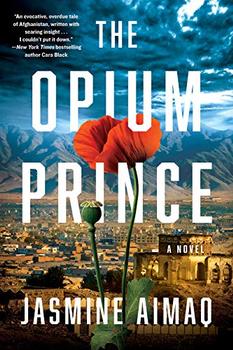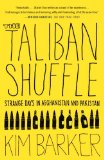Summary | Excerpt | Reviews | Beyond the book | Read-Alikes | Genres & Themes | Author Bio

Jasmine Aimaq's stunning debut explores Afghanistan on the eve of a violent revolution and the far-reaching consequences of a young Kochi girl's tragic death.
Afghanistan, 1970s. Born to an American mother and a late Afghan war hero, Daniel Sajadi has spent his life navigating a complex identity. After years in Los Angeles, he is returning home to Kabul at the helm of a US foreign aid agency dedicated to eradicating the poppy fields that feed the world's opiate addiction.
But on the drive out of Kabul for an anniversary trip with his wife, Daniel accidentally hits and kills a young Kochi girl named Telaya. He is let off with a nominal fine, in part because nomad tribes are ignored in the eyes of the law, but also because a mysterious witness named Taj Maleki intercedes on his behalf. Wracked with guilt and visions of Telaya, Daniel begins to unravel, running from his crumbling marriage and escalating threats from Taj, who turns out to be a powerful opium khan willing to go to extremes to save his poppies.
This groundbreaking literary thriller reveals the invisible lines between criminal enterprises and political regimes—and one man's search for meaning at the heart of a violent revolution.
Aimaq fictionalizes America's entanglement in Afghanistan with reference or allusion to historical events and players. She does so in a manner that depicts the stark inequality and poverty in the country as well as the politically expedient nature of US foreign policy. Throughout most of the book, Aimaq employs a third-person point of view that provides insight into the duality of Daniel's American and Afghani perspectives. This approach is also effective in relating the unspoken sentiments and past experiences that give depth to the characters and infuse their relationships with dramatic tension...continued
Full Review
 (757 words)
(757 words)
(Reviewed by Daniela Schofield).
The events of Jasmine Aimaq's debut novel, The Opium Prince, play out in the lead-up to the 1978 Saur Revolution, in which the Afghan president Mohammed Daud Khan was assassinated and overthrown by the Soviet-backed Marxist People's Democratic Party of Afghanistan (the PDPA). The president had himself come to power in 1973 by overthrowing the monarch Mohammed Zahir Shah with the backing of the PDPA but had eventually grown wary of the party's Soviet influence.
Between these two revolutionary events, Aimaq's protagonist, Daniel Sajadi, is in Afghanistan as the director of an American agency that aims to fight the cultivation of opium by encouraging and aiding the cultivation of food crops. While the agency, USADE, is fictional, its ...

If you liked The Opium Prince, try these:

by Nazanine Hozar
Published 2021
An extraordinary, cinematic saga of rags-to-riches-to-revolution--called a "Doctor Zhivago of Iran" by Margaret Atwood--that follows an orphan girl coming of age at a time of dramatic upheaval.

by Kim Barker
Published 2012
A true-life Catch-22 set in the deeply dysfunctional countries of Afghanistan and Pakistan, by one of the region's longest-serving correspondents.